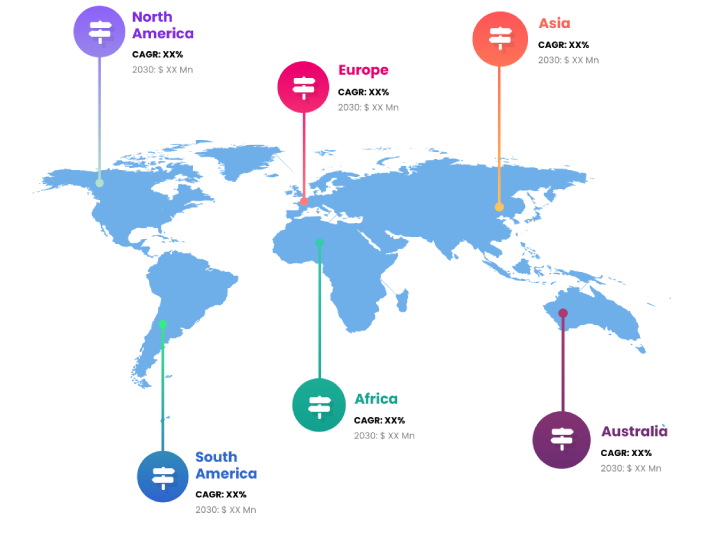
One way in which a transportation agency can stay in touch with its customers is through the passenger information system market. It allows the delivery of information regarding the whereabouts and status of vehicles in real-time, as well as their journey schedules and announcements made at the appropriate times. Not only does it have all these features, but it also aims to make riding the bus or train more enjoyable by providing in-seat entertainment options.
The passenger information system market is seeing expansion due to the increasing demand for precise and dependable real-time transit information by transit authorities. In addition, the market is growing due to developments in the telecommunications industry that allow for quicker data transfer capabilities, an increase in the demand for intelligent transportation systems, and a surge in the use of the Internet of Things (IoT) in the transportation sector. Furthermore, the market is anticipated to benefit greatly from the prospects presented by the increasing adoption of cloud and big data technologies. The high expense of these systems, however, makes their deployment and maintenance impractical, which slows the expansion of this sector.
In order to facilitate communication between transportation authorities and riders, passenger information systems are set up to provide riders with up-to-the-minute details about their vehicles' whereabouts, their scheduled routes, any necessary announcements, and any other necessary updates. By informing and entertaining riders with a variety of infotainment systems, these kinds of technologies improve riders' overall experience while in transit. Platforms, bus stations, subways, ports, and other similar locations can disseminate real-time information regarding buses, trains, and flights through these networks of interconnected devices. The passenger information systems market is being propelled by the increasing demand for accurate, up-to-the-minute passenger data and the popularity of public transportation.
The COVID-19 pandemic has had a major effect on transportation sector operations, with only a small effect on the government and information technology sectors. Many areas have been subject to lockdowns since the COVID-19 pandemic began. The number of individuals taking advantage of public transportation decreased dramatically. The closure of numerous public entertainment venues, retail centers, and airports was the result. We had to cancel or reschedule all of the sporting events, concerts, and expos. Due to the necessity to physically separating oneself, public transportation initially functioned at fewer than 50% capacity after lockout restrictions were relaxed. An economic disaster has erupted as nations fight to curb the COVID-19 epidemic. To get the economy back on its feet, we need to open borders and get the planes back in the air. The PIS market has seen a decrease in growth due to the practically constant suspension of public transport operations since the pandemic breakout.
The PIS market is expected to experience expansion due to the increasing demand for intelligent public transportation systems that offer passengers real-time transit information. Transportation agencies and service providers are using PIS solutions and services to better serve passengers in real-time, who are demanding more and more information to make their travels more enjoyable. Transportation companies are enhancing their information systems to give passengers with more amenities including in-transit network connectivity and real-time data availability, with the goal of increasing customer happiness. Travelers can now access personalized, real-time information thanks to the improved PIS. Destinations, connections at the next station, weather, news, and other third-party feeds are all part of the real-time information.
The term "smart public transportation" refers to a system that uses sensors and apps to wirelessly connect various vehicles and infrastructure. A number of nations are attempting to regulate app-based mobility services, yet these services lack a clear definition of a legal entity. The fact that app-based mobility service providers do not own the vehicles themselves creates additional complications, as taxi owners in various countries are required to get separate permits and registration papers in order to operate their businesses. Strict transportation regulatory policies hinder the expansion of the services segment by making it more difficult for vehicle operators to offer on-demand mobility services to consumers.
One of the main factors driving the development of the traveler data framework market is the increasing demand for reliable and accurate continual trip data from passengers. Along with this, advancements in the media transmission sector to enable quicker information move capabilities are fueling the market growth, and there has been an upsurge in the enthusiasm for smart transportation systems. Additionally, traveler data framework sales are being propelled globally by an increase in the demand for smart transportation systems and a deluge of adoption of IoT, cloud computing, and massive data breakthroughs in the transportation sector. There has been a dramatic increase in the number of reported cases of the COVID-19 virus, prompting several countries to implement lockdown measures. In an effort to stem the spread of the epidemic, they are pushing for social isolation policies, which is having a negative impact on business growth. Regardless, until predictability is regained, the market is anticipated to experience development.
Report Coverage
Global Passenger Information System research report categorizes the market for global based on various segments and regions, forecasts revenue growth, and analyzes trends in each submarket. Global Passenger Information System report analyses the key growth drivers, opportunities, and challenges influencing the global market. Recent market developments and Passenger Information System competitive strategies such as expansion, product launch and development, partnership, merger, and acquisition have been included to draw the competitive landscape in the market. The report strategically identifies and profiles the key Passenger Information System market players and analyses their core competencies in each global market sub-segments.
| REPORT ATTRIBUTES | DETAILS |
|---|---|
| Study Period | 2017-2031 |
| Base Year | 2023 |
| Forecast Period | 2023-2031 |
| Historical Period | 2017-2021 |
| Unit | Value (USD Billion) |
| Key Companies Profiled | CUBIC CORPORATION, THALES GROUP, TELESTE CORPORATION, SINGAPORE TECHNOLOGIES ELECTRONICS LIMITED, INDRA SISTEMAS SA, TOSHIBA CORPORATION, MITSUBISHI ELECTRIC CORPORATION, ALSTOM, HITACHI, LTD., SIEMENS AG |
| Segments Covered | • By Product |
| Customization Scope | Free report customization (equivalent to up to 3 analyst working days) with purchase. Addition or alteration to country, regional & segment scope |
Key Points Covered in the Report
- Market Revenue of Passenger Information System Market from 2021 to 2031.
- Market Forecast for Passenger Information System Market from 2021 to 2031.
- Regional Market Share and Revenue from 2021 to 2031.
- Country Market share within region from 2021 to 2031.
- Key Type and Application Revenue and forecast.
- Company Market Share Analysis, Passenger Information System competitive scenario, ranking, and detailed company
profiles. - Market driver, restraints, and detailed COVID-19 impact on Passenger Information System
Market
Competitive Environment:
The research provides an accurate study of the major organisations and companies operating in the global Passenger Information System market, along with a comparative evaluation based on their product portfolios, corporate summaries, geographic reach, business plans, Passenger Information System market shares in specific segments, and SWOT analyses. A detailed analysis of the firms' recent news and developments, such as product development, inventions, joint ventures, partnerships, mergers and acquisitions, strategic alliances, and other activities, is also included in the study. This makes it possible to assess the level of market competition as a whole.
List of Major Market Participants
CUBIC CORPORATION, THALES GROUP, TELESTE CORPORATION, SINGAPORE TECHNOLOGIES ELECTRONICS LIMITED, INDRA SISTEMAS SA, TOSHIBA CORPORATION, MITSUBISHI ELECTRIC CORPORATION, ALSTOM, HITACHI, LTD., SIEMENS AG
Primary Target Market
- Market Players of Passenger Information System
- Investors
- End-users
- Government Authorities
- Consulting And Research Firm
- Venture capitalists
- Third-party knowledge providers
- Value-Added Resellers (VARs)
Market Segment:
This study forecasts global, regional, and country revenue from 2019 to 2031. INFINITIVE DATA EXPERT has segmented the global Passenger Information System market based on the below-mentioned segments:
Global Passenger Information System Market, By Component
Hardware
Software
Service
Global Passenger Information System market, By Solution
PASSENGER INFORMATION DISPLAY SYSTEM
ANNOUNCEMENT SYSTEM
INFOTAINMENT SYSTEM
PASSENGER INFORMATION MOBILE APPLICATIONS
EMERGENCY COMMUNICATION SYSTEMS
Global Passenger Information System Market, By Mode Of Transportation
Railway
Roadway
Airway
Global Passenger Information System market, Regional Analysis
- Europe: Germany, Uk, France, Italy, Spain, Russia, Rest of Europe
- The Asia Pacific: China,Japan,India,South Korea,Australia,Rest of Asia Pacific
- South America: Brazil, Argentina, Rest of South America
- Middle East & Africa: UAE, Saudi Arabia, Qatar, South Africa, Rest of Middle East & Africa
You will get in-depth and extensive passenger information system market market research and competitor analysis for your business to help you develop more profound insights into the passenger information system market Market.
Through INFINITIVE Data Expert is a professional Market Research services, I will identify the passenger information system market market size, demand & opportunities, growth rate, and target audience with a comprehensive analysis of your competitors.



